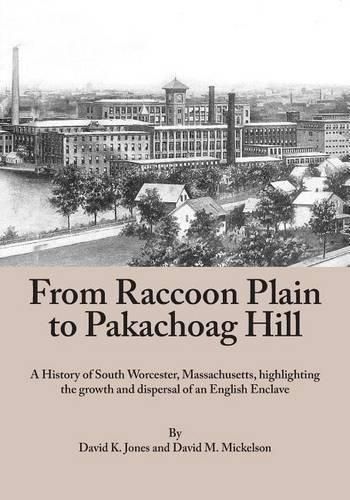Readings Newsletter
Become a Readings Member to make your shopping experience even easier.
Sign in or sign up for free!
You’re not far away from qualifying for FREE standard shipping within Australia
You’ve qualified for FREE standard shipping within Australia
The cart is loading…






From pre-colonial settlement through the industrial age to modern times, Worcester, Massachusetts has played a vital role in the development of this nation. Lying in the headwaters of the historic Blackstone River, invention and industry flourished very early here. The growth of the carpet industry in South Worcester fostered by M. J. Whittall led to the growth of an English Enclave there as hundreds of immigrants found employment and financial security. This book tells the little known story of English immigrants who were pulled to America by the promise of opportunity, and found it in South Worcester. Through the prosperous times of the late 1800s and early 1900s they held on to their English heritage as they moved to the new American suburbia, experienced two world wars and the Depression, and raised American-born children. The 1940s and 1950s saw their American grandchildren, including the authors, move away and break their last connections with the carpet mill and its community.
$9.00 standard shipping within Australia
FREE standard shipping within Australia for orders over $100.00
Express & International shipping calculated at checkout
From pre-colonial settlement through the industrial age to modern times, Worcester, Massachusetts has played a vital role in the development of this nation. Lying in the headwaters of the historic Blackstone River, invention and industry flourished very early here. The growth of the carpet industry in South Worcester fostered by M. J. Whittall led to the growth of an English Enclave there as hundreds of immigrants found employment and financial security. This book tells the little known story of English immigrants who were pulled to America by the promise of opportunity, and found it in South Worcester. Through the prosperous times of the late 1800s and early 1900s they held on to their English heritage as they moved to the new American suburbia, experienced two world wars and the Depression, and raised American-born children. The 1940s and 1950s saw their American grandchildren, including the authors, move away and break their last connections with the carpet mill and its community.